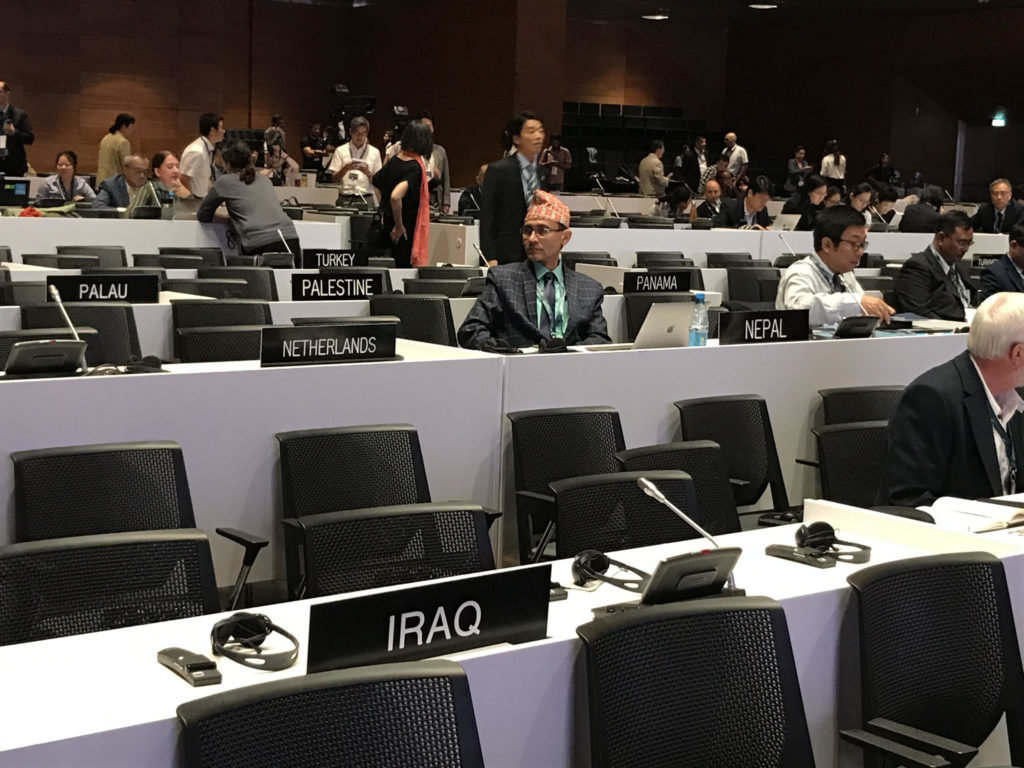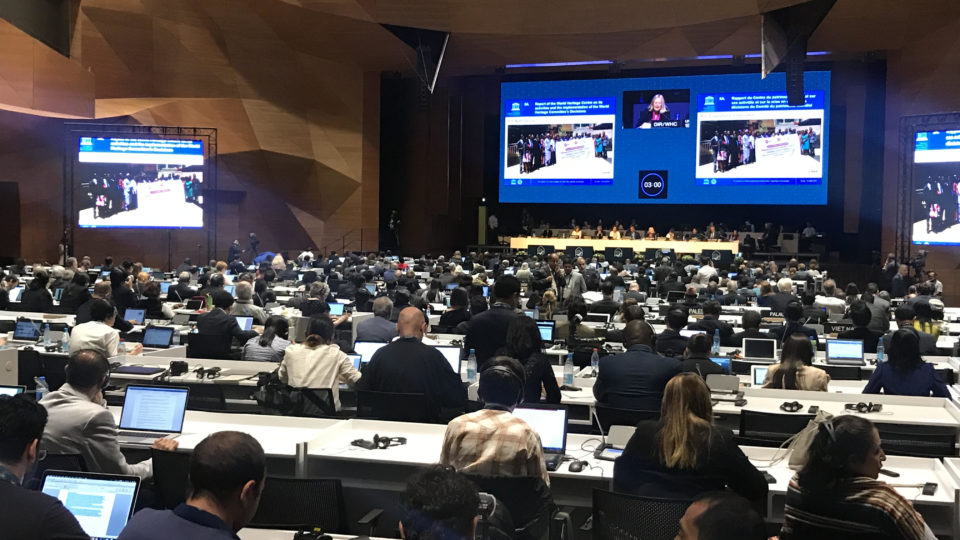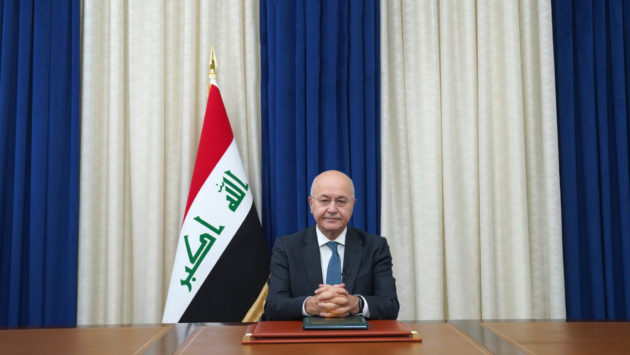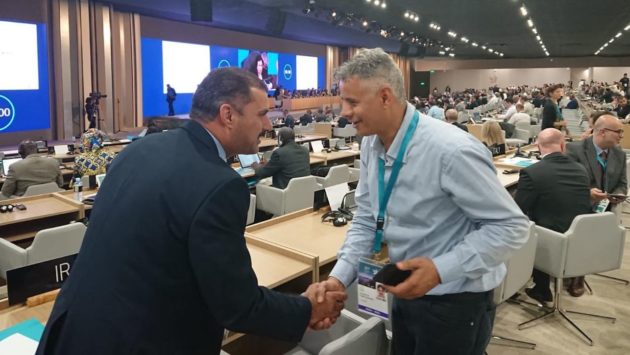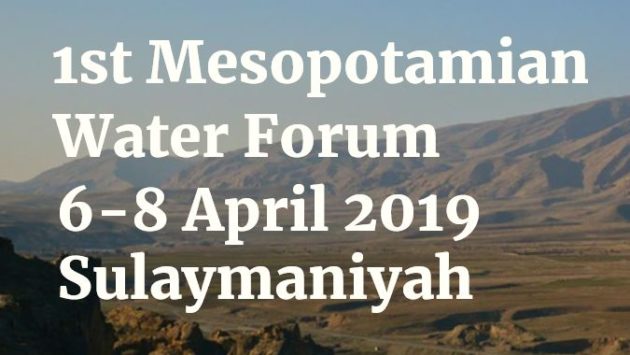The World Heritage Committee Should Step Up to Protect the Iraqi Marshes From Harm – A Report On the 2019 WHC Session in Baku
With the filling of the Ilisu Dam reservoir imminent, the annual session of the UNESCO World Heritage Committee (WHC) in Baku, Azerbaijan was an important opportunity to address the key threats to the Iraqi Marshes with policymakers. Minimum water flows to the heritage site have not been met in the past 2 years. Since dam construction on the Tigris River continues, the situation could worsen. Save the Tigris Campaign was present from the 28th of June in Baku to take part in the 7th International NGO Forum of World Heritage Watch (WHW), followed by participation in the 43th WHC Session as NGOs.
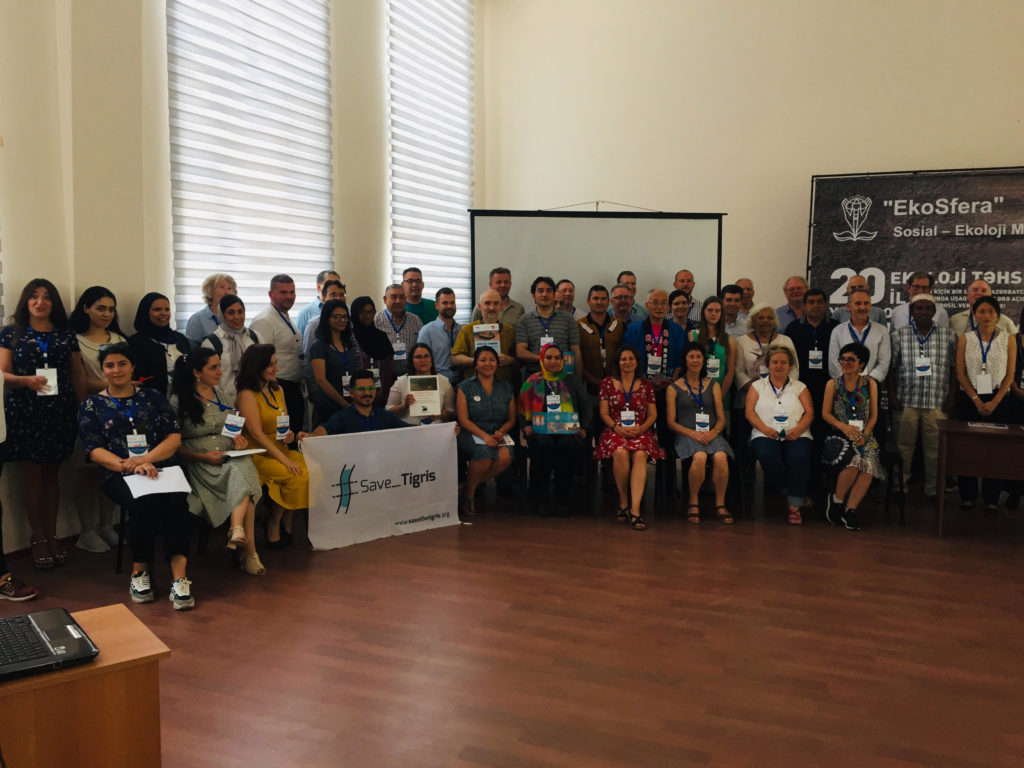
At the WHW Forum its members coming from more than 20 countries, adopted a resolution on the Ahwar submitted by Save the Tigris which subsequently was shared with State Delegations and advisory body IUCN. The forum dealt with specific policy issues of the WH Convention, including the how to anchor a role of civil society in the documents of the World Heritage Convention, the impacts of dams and climate change on heritage, as well as the politization of the WHC, a certain degree which seems to be unavoidable in the future. Policy documents will be further developed in the coming period.
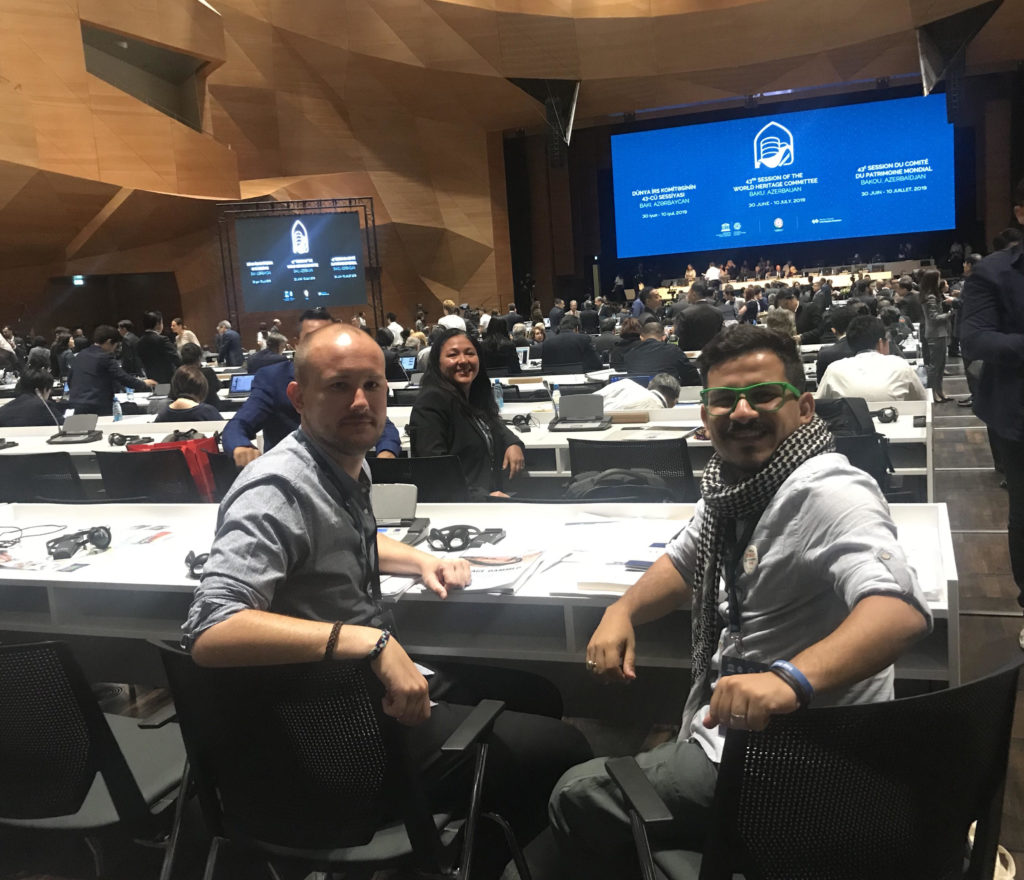
Then, Save the Tigris attended the first days of the WHC session. The Committee examined State of Conservation Reports of specific sites in the World Heritage List. This year the Ahwar of Iraq was on the agenda on 3 July. The Draft Decision 43.COM7B35 by the advisory bodies was adopted by the WHC without discussion. The decision makes no particular mention of upstream dam construction on the Tigris River, nor does it provide any tangible information on dialogue between the riparian states. Save the Tigris was able to speak to the State Delegations of Iraq, Turkey and Iran and discuss the impacts of upstream dam construction on the Marshes as well as dialogue between riparian states. The Campaign also addressed the specific case of Hasankeyf with the Turkish delegation. The delegations were handed copies of our resolution, a new report on the impacts of dams on heritage, the declaration of the Mesopotamian Water Forum and other documents. A sides event had been organized by the Iraqi delegation on the Iraqi Marshes, which entailed an exhibition as well as a discussion on the ecological significance of the site and management policies. Representatives of IUCN were consulted; the advisory body to UNESCO is currently in the process of planning the next monitoring visit to the Iraqi Marshes. Some Iraqi media was present, however mostly to cover the possible inclusion of the ancient site of Babylon in the World Heritage List.
The World Heritage Committee should step up to protect the Iraqi Marshes from harm and preserve its natural and human life. Read our resolution to the World Heritage Committee here.
